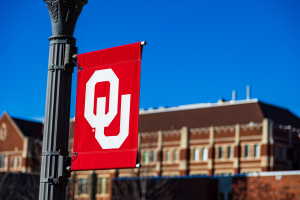Should Big Bird Be Subsidized?
Democratic strategists are scrambling to deploy a "Big Bird" strategy against Mitt Romney, but the debate over whether public broadcasting should continue to be subsidized has become serious business.
During last Wednesday's presidential debate, Republican nominee Mitt Romney mentioned Big Bird, a puppet from PBS' "Sesame Street," in making an argument about what could be cut from the federal budget.
Speaking directly to the moderator, Jim Lehrer host of PBS' "The Newshour," Romney said, "I'm sorry, Jim, I'm going to stop the subsidy to PBS. I'm going to stop other things. I like PBS, I love Big Bird. Actually like you, too. But I'm not going to -- I'm not going to keep on spending money on things to borrow money from China to pay for."
President Barack Obama has sought to capitalize on Romney's remarks by arguing that he will save the lovable bird.
"For all you moms and kids out there, don't worry -- someone is finally getting tough on Big Bird. Rounding him up. Elmo has got to watch out, too," Obama joked sarcastically at a Friday campaign stop in Virginia.
The publicly subsidized company also entered the campaign fray with a rebuke of Romney.
"We are very disappointed that PBS became a political target in the Presidential debate last night. Governor Romney does not understand the value the American people place on public broadcasting and the outstanding return on investment the system delivers to our nation," PBS wrote in a Thursday statement.
The statement cited the company's popularity and educational value, and said that without federal investment its services would end.
Romney's remarks about PBS came after a question about how to reduce the nation's deficit, which has hovered around $1 trillion per year in recent years. PBS was used as an example of a government program that could be cut because, to Romney, it is not necessary.
"Well, first of all, I will eliminate all programs by this test, if they don't pass it: Is the program so critical it's worth borrowing money from China to pay for it?" Romney said before his remarks about Big Bird.
The editors of the New Hampshire Union Leader agreed.
"The non-profit [Sesame Street] made more from product licensing ($47 million) in 2011 than it got from the government. It listed assets last year of $411 million -- just $24 million shy of the entire 2013 federal appropriation for the Corporation for Public Broadcasting.
"Obama says we should continue borrowing from China to fund an organization that is rolling in cash and does not need any government subsidies. Romney says that makes no financial sense. No matter how cute Big Bird is, Romney is right," they wrote.
The New York Post also lent support to Romney, noting that Obama's own deficit commission, Simpson-Bowles, recommends ending the subsidy for PBS as an unnecessary government expense. Obama touted Simpson-Bowles during the debate and his convention speech.
Conservative columnist Mark Steyn also mocked President of Sesame Workshop Gary Knell's nearly $1 million per year salary.
"In that sense, Big Bird and Sen. Harry Reid embody the same mystifying phenomenon: they've been in 'public service' their entire lives and have somehow wound up as multimillionaires," Steyn wrote.
James Poniewozik, a pop culture columnist for Time, noted that Romney's mention of Big Bird was different than past Republican arguments against public funding for the Corporation for Public Broadcasting, from which PBS government funding derives. Generally, it has been Democrats who brought up Sesame Street in their defense of government subsidies.
Republicans have usually pointed to the liberal bias of the NPR radio programs or Bill Moyers, who has a show on PBS. They might also mention less popular programs, such as "Antiques Roadshow" or "Downtown Abbey," and argue against government funding.
Romney's argument was different. Poniewozik summed it up this way: "Hey, I like the things you like too. We just can't afford them."


























